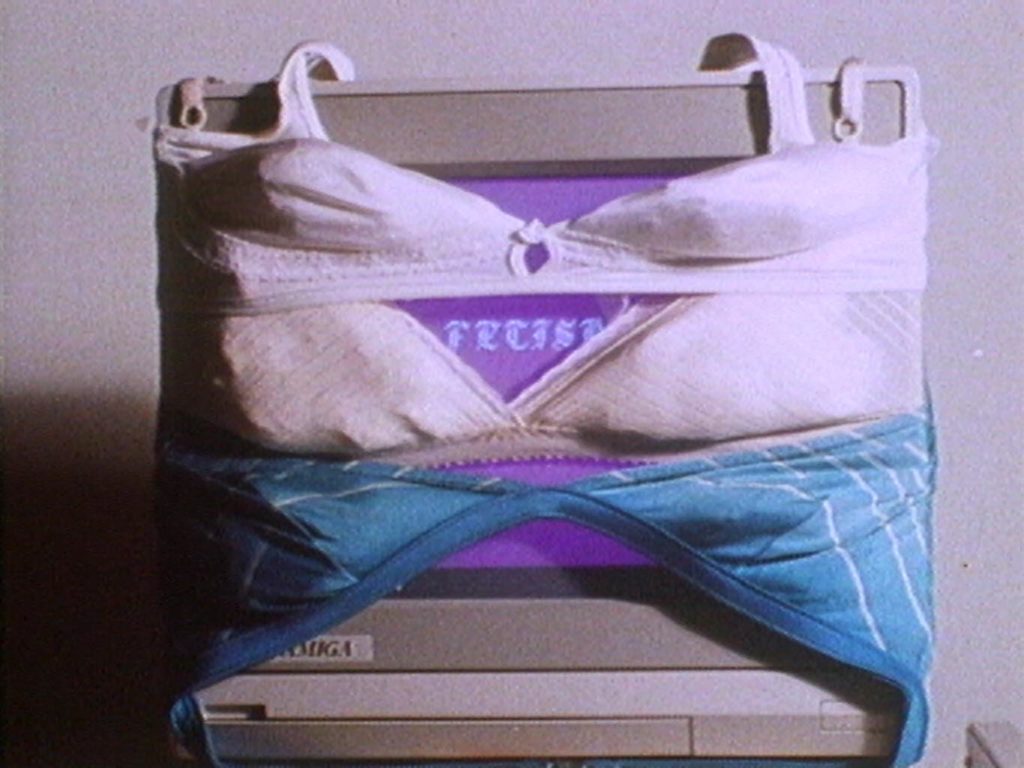Museo Macro Presents 16MM RUN
October 23, 2024, 7pm
Museo Macro
Rome, Italy

16MM RUN, the experimental film programme in collaboration with Villa Lontana returns on Wednesday 23 October, at 7 pm, with screenings of Women I Love (1976, 22’39‘’) and No Nooky T.V. (1987, 12‘’) by Barbara Hammer and Empty Suitcases (1980, 48’75‘’) by Bette Gordon.
Barbara Hammer, Women I Love, 1976, 22’39’
Women I Love is a series of cameo portraits of the filmmaker’s friends and lovers intercut with a playful celebration of fruits and vegetables in nature. Culminating footage evokes a tantric painting of sexuality sustained. Each lover is compared with a colorful flower, or a fruit or vegetable peeling open from its core in animated pixilation. Using double-exposure, out-of-date stock, the relationships are portrayed with a strong sense of the romantic. The lovers’ identities are never presented; rather the women are objectified and idealized. The film form tells us much about “lesbian lifestyle”; the relationships are clearly delineated yet it seems the traces of one relationship’s failure are repeated in the next.
Barbara Hammer, No No Nooky T.V., 1987, 12’
Using a 16mm Bolex and Amiga computer, Hammer creates a witty and stunning film about how women view their sexuality versus the way male images of women and sex are perceived. The impact of technology on sexuality and emotion and the sensual self is explored through computer language juxtaposed with everyday colloquial language of sex. No No Nooky T.V. confronts the feminist controversy around sexuality with electronic language, pixels and interface. Even the monitor is eroticized in this film/video hybrid that pokes fun at romance, sexuality, and love in our post-industrial age.
Bette Gordon, Empty Suitcases, 1980, 48’75’’
«Empty Suitcases is a narrative derived from film’s own material and the my concern for exploring issues of representation and identification in cinema. The film presents fragments of a woman’s life–her work as a photographer, her friendship and relationships; in short, her economic, sexual,and artistic struggles. By deconstructing the fragments of text, speech, music and picture, the film forces focus on the workings of narrative, as well as on the narrative itself. Central to Empty Suitcases is women’s inability to place and define themselfs in laguage and politics, the location of radical struggle. This displacement leads to a definition of woman as other, and reveals problems of unresolved sexual relations, difference, and violence» (Bette Gordon). According to J. Hoberman (Village Voice), her most successful sequences – a militant ‘new wave’ fashion show in which models photograph themselves, an expressionless white woman lipsynching alog to Billie Holliday, a scene where the filmmaker relates a dream only to be drowned out by Talking Heads singing ‘Psycho Killer’ – all criticize conventional modes of representation, with particular attention to what current academic jargon calls ‘the imaging of woman’.